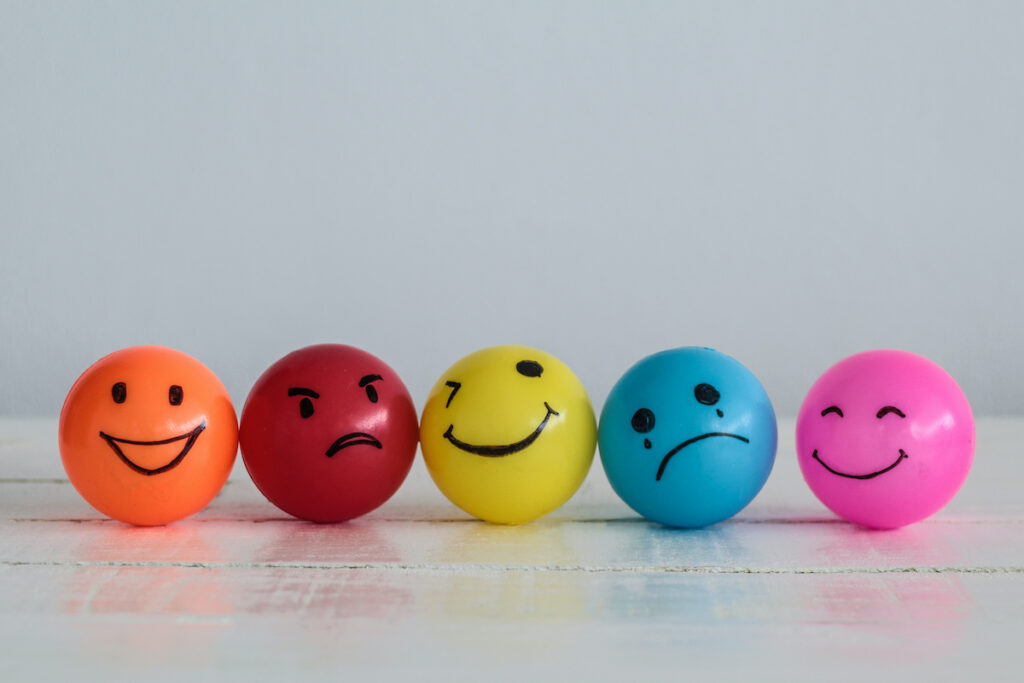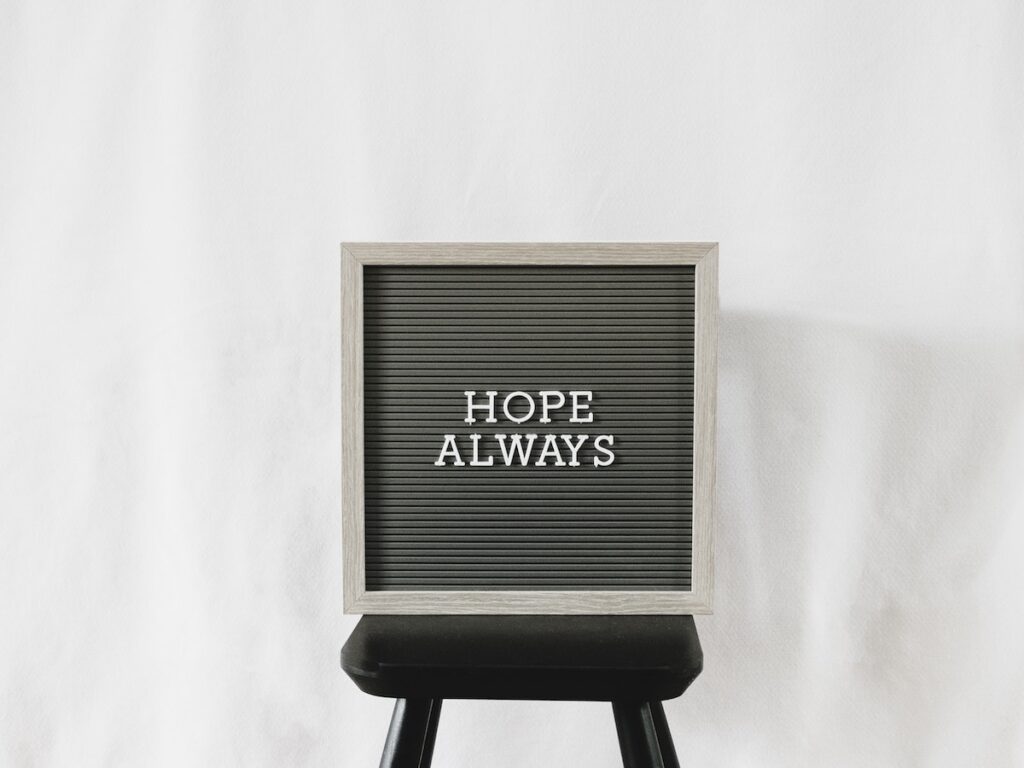
What comes to mind when you hear the words ‘personality disorder’? For some, it may conjure a sinister caricature of mental illness, or images from Fatal Attraction. For others, the words may elicit unsettling thoughts of something being fundamentally wrong with a person. These are some of the concerns surrounding the diagnostic label of ‘personality disorder’.
Should it stay or should it go?
Unfortunately, it’s not that simple. Even amongst clinicians, researchers, and those with lived mental health experience, a consensus seems out of reach (Campbell et al., 2020; Fairfax et al., 2011). Those arguing to keep the label state that it gives a name to a set of symptoms, and so facilitates access to specialised intervention (Campbell et al., 2020). However, those in favour of amending or discarding the term (and for some, diagnostic labels altogether) state that ‘personality disorder’ is associated with negative stereotypes and stigma, often delaying or preventing access to support services (Mind, 2018). Some raise the point that even if we do replace ‘personality disorder’, this doesn’t address the underlying stigma and associated discrimination.
Previous studies have examined service user perspectives on the label of personality disorder (Lester et al., 2020). The aim of this study was to qualitatively explore the perspectives of clinicians and service users in the controversy surrounding the diagnostic label of personality disorder.

There is significant debate around the label of personality disorder. Should the label stay or go?
Methods
Participants included clinicians (n=32), individuals with lived experience (n=4), and those with dual identities (n=8) attending the British and Irish Group for the Study of Personality Disorder Conference (BIGSPD) in 2019.
This was a co-produced, qualitative design, using a novel ‘World Cafe’ methodology: a ‘round robin’ format where participants visited several work stations to discuss and debate topics around the label of ‘personality disorder’. A discussion framework designed by the research team covered the following areas: the emotional aspect, the impact of the label, and future directions.
Results
Emotive aspects
Defectiveness and shame
Shame associated with the label of personality disorder impacted willingness to seek mental health support. A sense of ‘defectiveness’ made them feel blamed for their own suffering.
Retaining humanity
Some viewed their label as a positive thing that gave them the opportunity to bond with a community through shared identity. Others stated that the label became all people saw of them. Participants also raised concerns that the label’s negative connotations acted to legitimise discrimination against minoritised groups.
Impact of label
Stigma and discrimination
Key points raised were with regards to stigma, with discussions of experiences of exclusion from health services, social housing, and community groups. Some participants gave an alternative account of belonging and hope: they discussed how the label facilitated access to specialist interventions and co-produced research.
A ‘disordered’ personality
Participants highlighted how referring to personality as ‘disordered’ sent the message that there was something inherently ‘wrong’ with them.
Treatment trajectory
The manner with which clinicians delivered their diagnosis made all the difference to participants’ relationship with the label of personality disorder. When clinicians were reassuring about treatability, participants described feeling ‘hopeful’ and ‘empowered’. Those who had a more negative experience described staff as judgmental and ill-informed, resulting in feelings of hopelessness.
Future directions
Questioning the label
Views were expressed both for and against keeping the label. The primary concern was with removing association with ‘personality’. Some participants described wanting to avoid labels altogether. Conversely, some expressed concern that without a label, there was no way to lobby for their rights, funding, or research.
Different approaches
Participants raised concerns regarding the ‘postcode lottery’ of service access, and exclusion from services due to their diagnosis. They gave suggestions for how to address these issues, including increased funding, staff education, and more compassionate leadership.
Participants also favoured a formulation-based, trauma-focused approach to treatment over diagnosis, emphasising the need to focus on clients’ unique strengths and challenges.
Attitude change
Co-produced research and policy development was suggested as a method for achieving a change in attitude, addressing the public health system as a whole.
Finally, participants stated that addressing negative media portrayals of personality disorder will be helpful in battling misconceptions and creating a more compassionate society.

“We are more than a label”. Participants in this study discussed their identity and the experience of receiving a ‘personality disorder’ diagnosis.
Conclusions
Opinions around the label of ‘personality disorder’ continue to be divided. Participants’ views of the label were largely moderated by the nature of their interaction with services. It was noted that stigma remains pervasive and a continued driver of discrimination. The future of the label is still up for debate. The primary concern was with removing reference to ‘personality’ as being disordered. Those in favour of maintaining the label cite a fear of a loss of progress along with a loss of label. Findings indicated some areas of focus for future research, particularly delivery of intervention and fostering compassion and understanding in healthcare and social services.

The perspectives of service users were divided as well as influenced by the nature of their interaction with the mental health services.
Strengths and limitations
Participants were provided with pastoral support, owing to the sensitive nature of the topic. This shows good insight into the emotional labour of discussing lived experience, which is often overlooked in the research space (Faulkner, 2021). The ‘World Cafe’ methodology is a good facilitator of debate surrounding complex issues, encouraging open communication and creative thinking (Brown et , 2010). This format also allowed the authors to draw from a large sample. Findings raise thought-provoking points, and illuminate a path in the direction that future research, practice, and policy should take. Most importantly, this is informed directly by those with lived experience.
The public forum for data gathering may have led to a social desirability bias (Bergen & Labonte, 2020). Additionally, the ratio of clinicians: lived experience was skewed in favour of the clinicians. The authors attempted to mitigate the power imbalance by having equal representation of occupational and lived experience in the moderators. However, it still remains that power differentials in this dynamic may have led to discomfort in being honest, or pressure to defer to clinicians’ ‘professional’ views.
Participants were all involved in research or practice, and were recruited from a research conference. This selection bias calls into question the generalisability of findings to the wider population of those with ‘personality disorder’, including those with more severe mental illness. This approach excludes those without access to co-produced research, which, owing to the demographics of research institutions (HESA, 2021) will primarily be ethnic minorities. This sample therefore neglects the voices of those who may not be in a position to speak out.
The lack of information on the demographics of their sample makes it unclear whether the opinions of ethnic minority populations were accounted for. Different ethnic demographics will have vastly different experiences, due in part to social factors such as variable service access and the cumulative effect of discrimination. They would therefore have brought different perspectives to the table.

Future directions need to focus on the examination of service access, and building a more compassionate society.
Implications for practice
Findings lay out areas where change is necessary – stating the ‘what’ if not the ‘how’ – providing a focus for future research. Brown and colleagues stated that “knowing the conversation may have a beginning but it has no end” (Brownet al., 2010, p. 4) is a principle of the World Cafe methodology and is illustrative of the findings discussed in this paper. The debate will remain ongoing, but the points raised do provide some guidance for progressing the conversation through future research.
Findings did not reach a consensus on much, but they were certain of one thing: there is an urgent need for a means of challenging stigma within institutions and in wider society. Despite previous education campaign efforts, reviews of the field reveal a persistence of stigma (Royal College of Psychiatrists, 2020), therefore highlighting the need for future research to explore more options. To address stigma and discrimination, efforts need to include an adoption of compassionate practice in healthcare, and a fostering of greater public awareness and empathy.
Findings illustrate that participants’ negative feelings towards the label come from the experiences that result from it, starting with the delivery of diagnosis. Facilitation of more positive clinical interactions is likely to yield better treatment outcomes and greater wellbeing (Lester et al., 2020). Therefore, future research should explore what separates a positive clinical interaction from a negative one in more detail, and further staff training should follow. Co-produced efforts will help improve appropriateness and relevance of staff training.
In my clinical and research experience in Sri Lanka, people often didn’t have a label for what they were experiencing. In Sinhala, one of the national languages of Sri Lanka, there isn’t even a word for depression, much less personality disorder (Amarasuriya et al., 2015). This circumstance may apply to ethnic minority communities in the UK, particularly recent immigrants, and those with language barriers. For this population, the term ‘personality disorder’ is vague and terrifying and doesn’t offer any insight or explanation, providing a point in favour of doing away with the label and focusing instead on the individual.
A word of caution
A focus on semantics may distract from more pressing research that cuts to the root of the problems experienced by those with a diagnosis of personality disorder. For example, how to improve clinical interactions and outcomes, and how to combat stigma. Studies like this have implications for how we think of mental illness. Shared in a digestible format, this study removes the fear of the ‘unknown’ and centres the humanity of those struggling with mental ill-health, in itself making strides to achieve the change it states needs to happen.

The debate on the diagnosis of ‘personality disorder’ continues, but we can agree on the fact that change needs to happen.
Statement of interest
None.
Links
Primary paper
Lamph, G., Dorothy, J., Jeynes, T., Coak, A., Jassat, R., Elliott, A., … & Thornton, T. (2021). A qualitative study of the label of personality disorder from the perspectives of people with lived experience and occupational experience. Mental Health Review Journal.
Other references
Amarasuriya, S. D., Jorm, A. F., & Reavley, N. J. (2015). Depression literacy of undergraduates in a non-westerndeveloping context: the case of Sri Lanka. BMC research notes, 8(1), 1-14.
Bergen, N., & Labonté, R. (2020). “Everything is perfect, and we have no problems”: detecting and limiting socialdesirability bias in qualitative research. Qualitative health research, 30(5), 783-792.
Brown, J., Isaacs, D. & The World Café Community. (2010) The world café: Shaping our futures through conversationsthat matter. San Fransisco, CA: Berret-Koehler Publishers.
Campbell, K., Clarke, K. A., Massey, D., & Lakeman, R. (2020). Borderline Personality Disorder: To diagnose or not todiagnose? That is the question. International journal of mental health nursing, 29(5), 972-981.
Fairfax, H. (2011). Re-conceiving personality disorders: Adaptations on a dimension?. Counselling Psychology Quarterly, 24(4), 313-322.
Faulkner, A., & Thompson, R. (2021). Uncovering the emotional labour of involvement and co-production in mental health research. Disability & Society, 1-24.
HESA (2021) https://www.hesa.ac.uk/data-and-analysis/staff/working-in-he/characteristics
Lester, R., Prescott, L., McCormack, M., & Sampson, M (2020) Service users’ experiences of receiving a diagnosis of borderline personality disorder: A systematic review. Personality and Mental Health. 14, 263-283.
Mind (2018) Shining Lights in Dark Corners of People’s Lives; The Consensus Statement for People with ComplexMental Health Difficulties who are diagnosed with a Personality Disorder. https://www.mind.org.uk/media/21163353/consensus-statement-final.pdf.
Royal College of Psychiatrists (2020) PS01/20: Services for people diagnosed with personality disorder.https://www.rcpsych.ac.uk/docs/default-source/improving- care/better- mh-policy/position-statements/ps01_20.pdf?sfvrsn=85af7fbc_2
Photo credits
- Photo by Debby Hudson on Unsplash
- Photo by Amin Oussar on Unsplash

Two points need a mention.
Firstly, many survivors would never go to the British and Irish Group for the Study of Personality Disorder Conference (BIGSPD) because of its problematic ethos and terminology (cf the excellent blog by the survivor led collective Mad Covid https://madcovid.wordpress.com/2022/06/14/actions-speak-louder-than-words-what-are-bigspds-values/). This means the participant group is uneven not just by having more clinicians but a skewed sample of people with lived experience above and beyond what is mentioned in the review. It is difficult to overestimate this bias given the politics around the personality disorder label.
Second, the reference to ‘knowing the conversation may have a beginning but it has no end’ is somewhat insulting given this conversation has been going on for decades. Perhaps the reader might be better signposted to the consensus paper led by Lord Norman Lamb and Lived Experience Expert Sue Sibbald which included a far greater range of stakeholders, including the key professional organisations (https://www.mind.org.uk/media-a/4408/consensus-statement-final.pdf). This concluded that the label has done too much damage for too long to continue to be used. Must we really go backwards in the debate?
Whilst I greatly appreciate the contribution of lived experience practitioners to the research above, we can and must find a way of speaking which is value-neutral and includes everyone. The time for this is now.
The so-called ‘stigma’ comes from the behavior of the personality-disordered individual, not from some prejudice. If you rename personality disorder to ‘complex PTSD’ or whatever else, ”I keyed my girlfriend’s car and threatened her with suicide because she didn’t text me back quickly enough, it’s all due to my complex developmental trauma though” will still be ‘stigmatized’, and for a good reason.